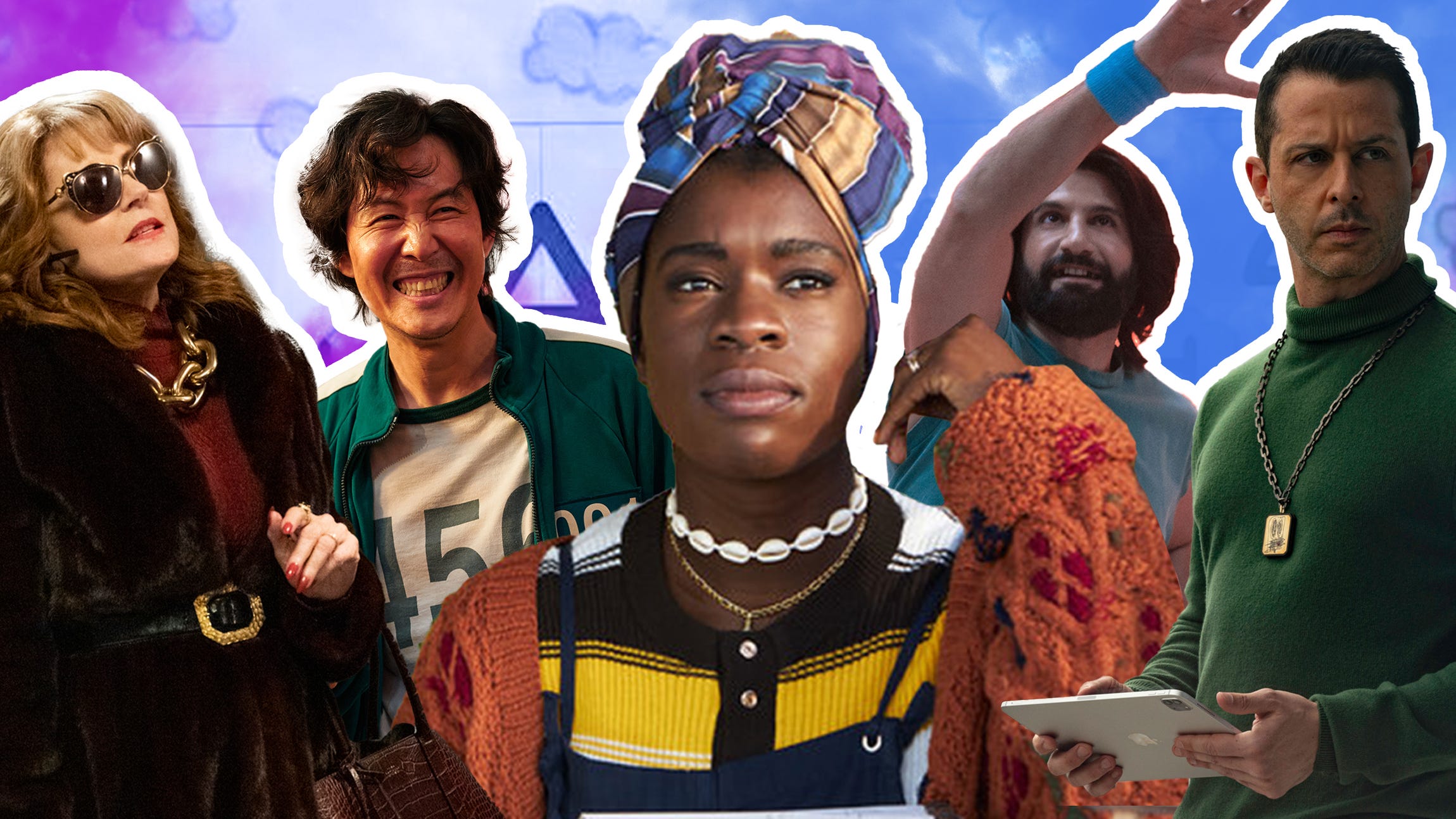
The 20 Best TV Episodes of 2021
These stories stood out from the crowd, sometimes without saying a word
Though the goal for every television show is consistency, there's no denying that if you graphed the quality of every series episode by episode, you'd end up with something pointy enough to slice bread with. And that's not even to say that some episodes are bad; it's just that some are really, really good, and they rise above the rest. That's what we're here to celebrate: the best TV episodes of 2021.
They took us everywhere (as near as home, as far as the moon!), spanning a variety of topics that we all can't talk about enough. Some said huge things about the frustrating state of modern love, like Dave's take on online dating. Some were ruminations on death, like The Baby-Sitters Club's thoughtful look at how we remember someone who has passed. Some stung with painful barbs, like the shocking crash of Succession's epic birthday party. Some said nothing at all yet still spoke volumes, like Evil and Only Murders in the Building's silent hours.
Below, you'll find the hours of television that made us forget about everything else, if just for a bit. The list is unranked and in alphabetical order by show, because greatness is incomparable. Here are TV Guide's 20 best episodes of 2021.
For more, check out our lists of the 25 best shows of 2021 and the 20 best performances of 2021.
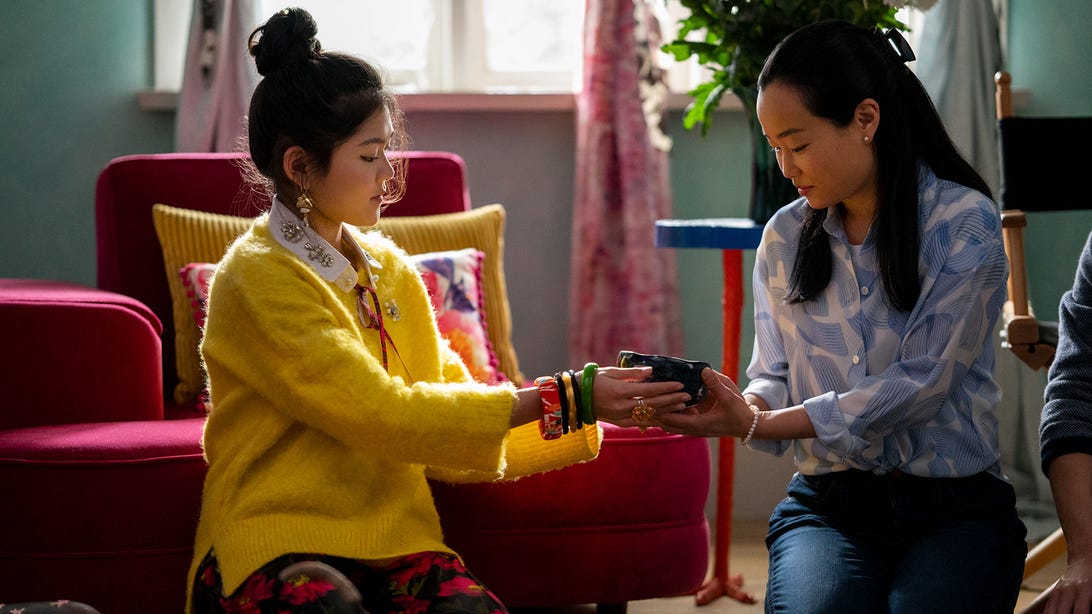
Momona Tamada and Diana Bang, The Baby-Sitters Club
Kailey Schwerman/Netflix"Claudia and the Sad Goodbye," The Baby-Sitters Club
Netflix's great-for-all-ages Baby-Sitters Club showed off its delicate touch for difficult subjects in this standout episode about losing a loved one. "Claudia and the Sad Goodbye" is set mostly in the immediate aftermath of the death of Claudia's (Momona Tamada) grandmother, Mimi (Takayo Fischer, whose warmth hangs over every scene she's not in). As Claudia runs from her feelings, what upsets her most is the idea of living in a home with no Mimi in it. It's a gentle but honest look at all the everyday experiences that are transformed when someone dies, a story that's enriched by rooting the Kishi family's mourning in their Japanese Buddhist traditions. Claudia ends the episode by making tea for her friends and family the way Mimi taught her, offering the kind of sweet catharsis that seems to come naturally to this show. Kudos to The Baby-Sitters Club for never talking down to its audience. -Kelly Connolly

Big Mouth
Netflix"A Very Big Mouth Christmas," Big Mouth
Everybody's favorite cartoon for perverts gifted its fans an old school stop-motion Christmas episode this year, complete with hormone monster puppets in the style of the 1964 Rudolph the Red-Nosed Reindeer TV special. True to Big Mouth's naughty form, there's an elf orgy in Santa's workshop, Saint Nick goes on a bender after questioning his existence, and the ghost of Duke Ellington sings a festive, X-rated version of "Deck the Halls" with lyrics that I can't include here. You know you're in for a wild 30 minutes when a John Wick-inspired anime starring Jay's dog Ludacris is somehow one of the more predictable subplots. -Lauren Zupkus

Doja Cat, Dave
Byron Cohen/FX"Somebody Date Me," Dave
Though Season 2 of FXX's Dave was bookended by bombastic episodes of shooting videos in Korea and hallucinatory trips at Rick Rubin's house, it's a mid-season standalone episode that stands out above the rest. Taking a break from Dave's (Dave Burd) writer's block, "Somebody Date Me" looks at one of the worst forms of torture — online dating — in the one of the worst places to do it — Los "What kind of car do you drive?" Angeles. The entire episode follows a text circle as Dave flirts with his new match, Doja Cat, while they go about their days promoting their music in various states of celebrity, but celebrity nonetheless, and others as they go about their "normal people" business. What follow are clever statements about the trappings and benefits of fame, carefully crafted online personas, our obsession with our phones, celebrity ladder-climbing, and, as we see in the final moments, the unfortunate — but darkly funny — reality that we're all someone's second choice when everyone has access to a better option. Enjoy your sad gumbo, loser guy at the end. -Tim Surette
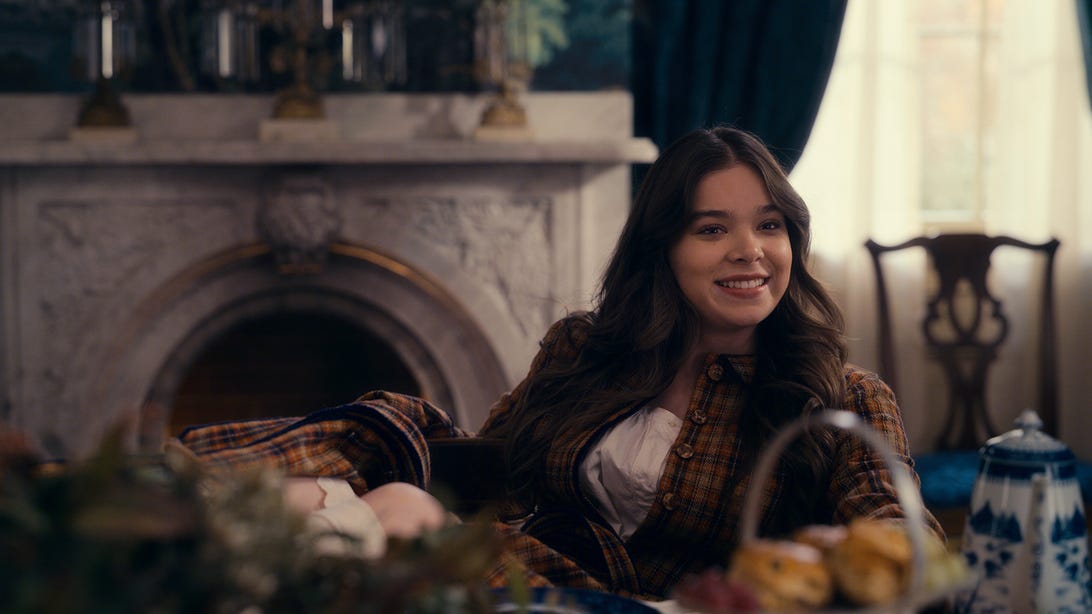
Hailee Steinfeld, Dickinson
Apple TV+"I'm Nobody! Who are you?" Dickinson
Dickinson churned out two seasons this year — fitting that it should be at the height of its powers while its heroine is at the height of hers. Out of that prolific run of episodes, none has stuck with me like "I'm Nobody! Who are you?" Written by showrunner Alena Smith and Ayo Edebiri (who also steals scenes on screen as Hattie) and directed by Stacie Passon, the surreal tale has a fun hook: The day her poem is published in the local paper, Emily (Hailee Steinfeld) wakes up to find that no one can see her. On its own, it's a witty play on the ego death that comes with fame. But what makes it great is that it's set against a story of Black artists claiming their right to visibility. Spying on a meeting of Amherst's underground abolitionist paper, Emily watches the writers come together to celebrate working toward revolution, even in anonymity. The highlight of the episode is a barn dance that erupts into a joyous, choreographed vogue ballroom. Their victory — funding John Brown's camp before the ill-fated raid on Harpers Ferry — will be short lived. But as they dance, they look into the camera, and they're seen. -Kelly Connolly

Katja Herbers and Alexandra Socha, Evil
Elizabeth Fisher/CBS 2021Paramount+ Inc."S Is for Silence," Evil
Evil's superb silent episode was a long time coming. Robert King, who directed the hour and wrote it with co-showrunner Michelle King, told TV Guide he had been pushing for a silent episode since the days of The Good Wife. It was worth the wait. "S Is for Silence" — which is actually one of two mostly dialogue-free episodes on this list, but the only one with stigmata — thrilled me like nothing else I watched this year. Set in a silent monastery where no one is allowed to speak a word for fear of unleashing a demon, it's a Twilight Zone fable about the terror of trying to silence your mind, soaked in whiskey and juiced up with religious horror, but also made tender by Kristen's (Katja Herbers) care for a young nun (Alexandra Socha). Their connection in an oppressively male space unfolds like an almost-love story in the eye of the storm. Every emotion is heightened in the silence; the comedy peaks, too, with visual gags ranging from a trip inside David's (Mike Colter) mind to the funniest shirt anyone has ever worn to an exorcism. Evil really can do it all with one hand tied behind its back. -Kelly Connolly
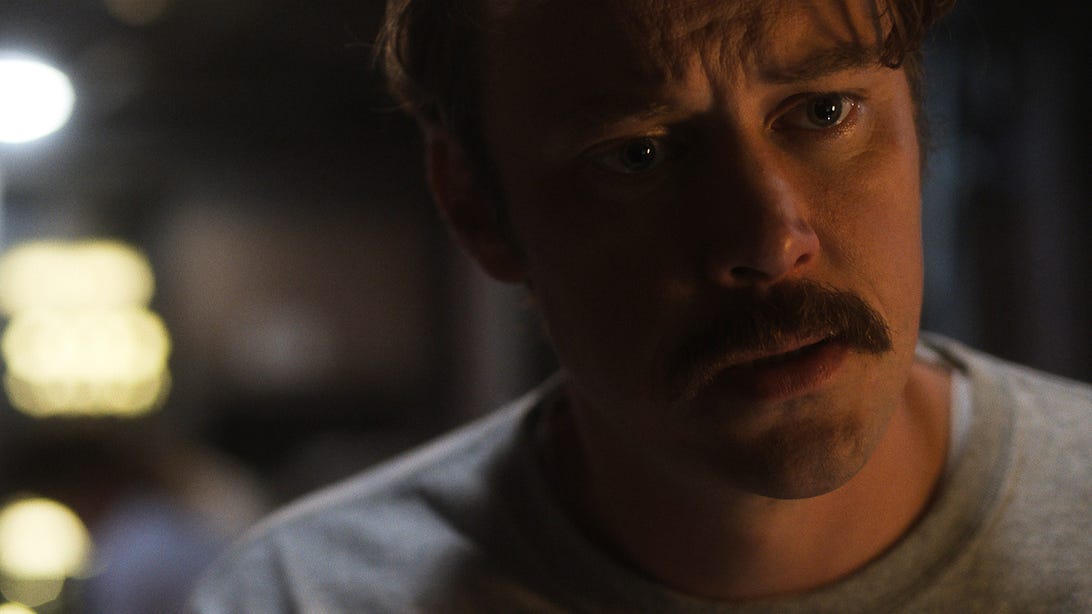
Michael Dorman, For All Mankind
Apple TV+"The Grey," For All Mankind
Like the most carefully planned NASA expeditions, For All Mankind spends most of its time carefully positioning pieces into orbit until they're exactly where they need to be for the final descent, and in Season 2, For All Mankind landed a rocket on the head of a pin. Moving parts on the moon, the Earth, and in space aligned perfectly for one of the year's most thrilling season finales, with nothing less than the prospect of World War III at stake. As shots rang out IN A MOONBASE, heroes made the proverbial ultimate sacrifice, spaceships postured ready to blow each other to smithereens, and potential sabotage back on terra firma was afoot. And this is all before the episode's breathtaking final moments, which hinted that For All Mankind is about to go further than we ever thought. -Tim Surette
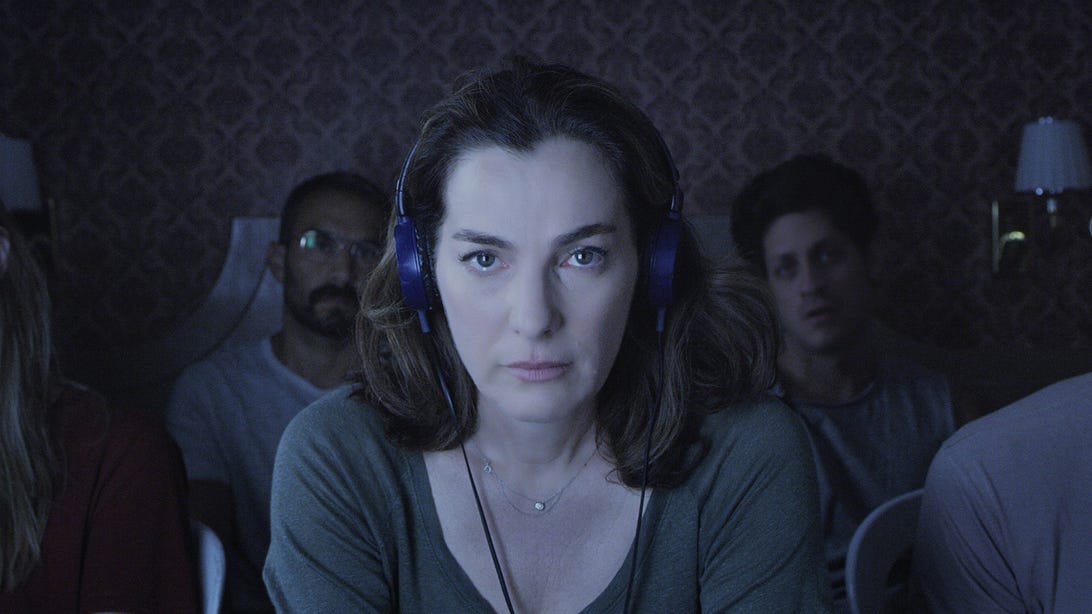
Ayelet Zurer, Losing Alice
Apple TV+"The Scene," Losing Alice
Apple TV+'s Israeli import is all about watching things — a marriage, confidence, sanity — slowly crumble, and in the miniseries' penultimate episode, "The Scene," a ball peen hammer is taken to all three with gradually increasing force until there is nothing left but dust. The psychological, psychosexual series — following Alice (Ayelet Zurer), a female film director who returns to work after a hiatus to have children, only to have her first project back draw in a seemingly innocent actress who disrupts her personal life — builds to filming a sex scene between the actress and Alice's real-life husband, exacerbating the tension among the three that had been stacking up to unscalable heights in the previous episodes. But Alice's Faustian deal to become a respected director again requires her to get the most out of the scene (which goes on for an agonizingly long time after multiple failed takes; this is one episode you do NOT want to watch with your parents), pushing her marriage off a cliff to make room for her art. It's a devastating and supremely uncomfortable hour, made all the more unsettling by Alice's reaction, a befuddled mix of accomplishment and complicity as her achievement comes with grave consequences. -Tim Surette
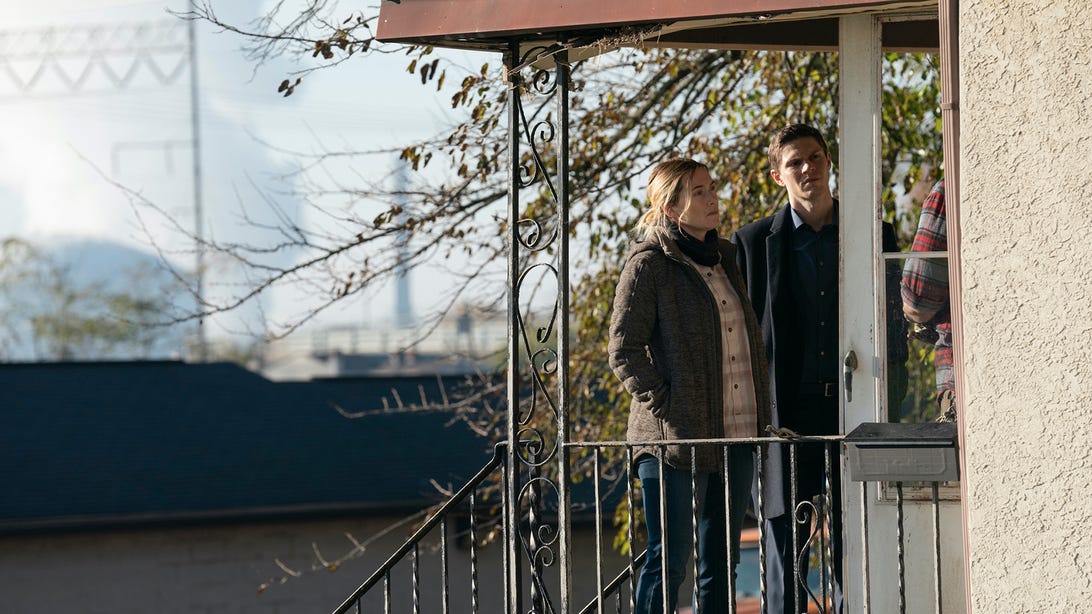
Kate Winslet and Evan Peters, Mare of Easttown
HBO"Illusions," Mare of Easttown
For a show packed with devastating moments, "Illusions" stands as Mare of Easttown's most emotionally resonant hour. It's a game-changing episode, one of those episodes you always want to see from crime series like this, and it arrives at a turning point in Mare's (Kate Winslet) investigation into who killed Erin McMenamin (Cailee Spaeny). As a whole, "Illusions" does some great character work, like Mare's therapy breakthrough, as well as a total dud of a date between her and Zabel (Evan Peters), but it's those last five minutes, which are packed with so much claustrophobic tension and heart-racing choreography as Mare creeps through a creaky old house, that make this episode such an all-timer. The last shot of Mare, lying on the ground as she begins to process the trauma she just experienced, is a haunting example of everything this show did so well. -Allison Picurro
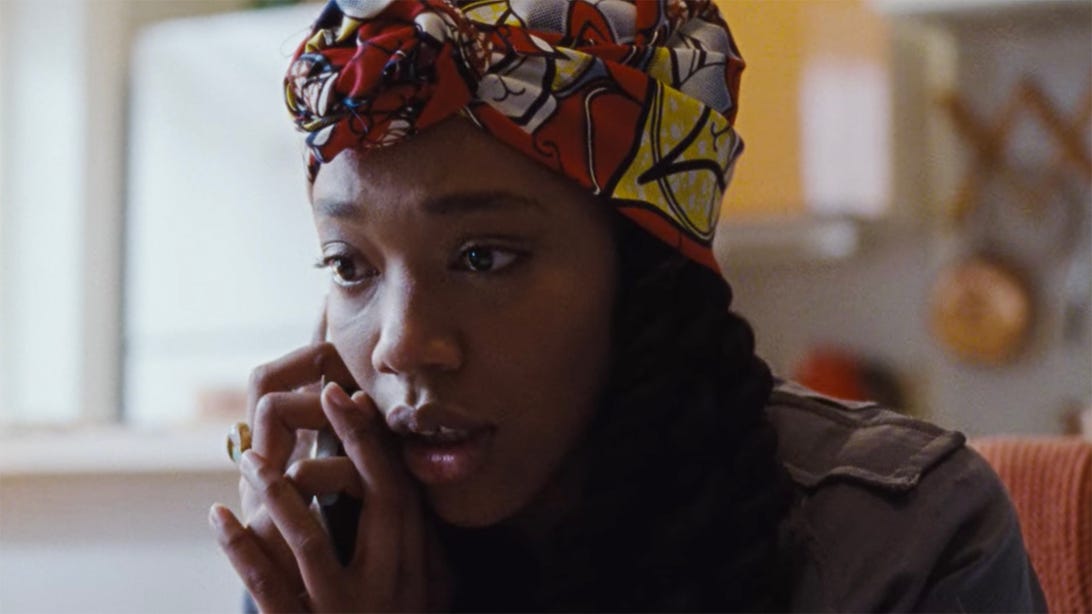
Naomi Ackie, Master of None
Netflix"Moments in Love, Chapter 4," Master of None
Master of None has always been at its best in its standalone episodes (see the Emmy-winning "Thanksgiving" from Season 2), and that streak continues in Season 3, aka Moments in Love, which is about writer Denise (Lena Waithe) and her marriage to and divorce from antiques dealer Alicia (Naomi Ackie). "Chapter 4" is entirely about Alicia as she undergoes IVF treatment twice, a difficult process made even more difficult as Alicia goes through it as a single, Black lesbian paying out of pocket because her insurance won't cover it. But she's not completely alone, as she's emotionally supported by her mother, her doctor, her sperm donor, and, especially, Nurse Cordelia, the world's greatest nurse, played by actual former nurse Cordelia Blair, who wasn't even originally supposed to be a prominent character and improvised much of her dialogue. The episode tells a story rarely seen on TV and even more rarely from this perspective, with a wellspring of empathy and unusually beautiful cinematography. -Liam Mathews
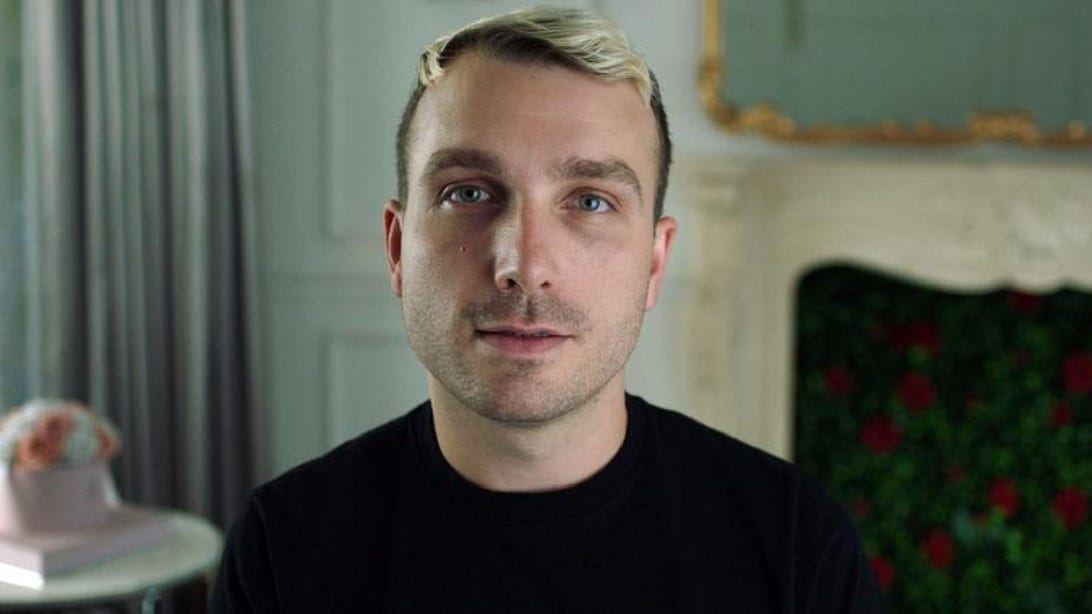
Alex Vlasov, The New York Times Presents: Controlling Britney Spears.
FX"Controlling Britney Spears," The New York Times Presents
The New York Times Presents' February episode about Britney Spears' conservatorship helped bring awareness and credibility to her legal plight, but that episode, "Framing Britney Spears," was more of an examination than an exposé. "Controlling Britney Spears," however — the series' second episode on the pop legend — included several disturbing bombshells previously unknown to even the most dedicated fans. Ex-employees share shocking allegations of Spears' father's gross abuse of power; a former executive assistant claims he was instructed to delete 180 hours of audio files that were recorded in the singer's bedroom without her knowledge. The episode's alarming revelations made headlines at every major outlet and undoubtedly added to the pressure to free the Grammy winner from her conservatorship in November. -Lauren Zupkus
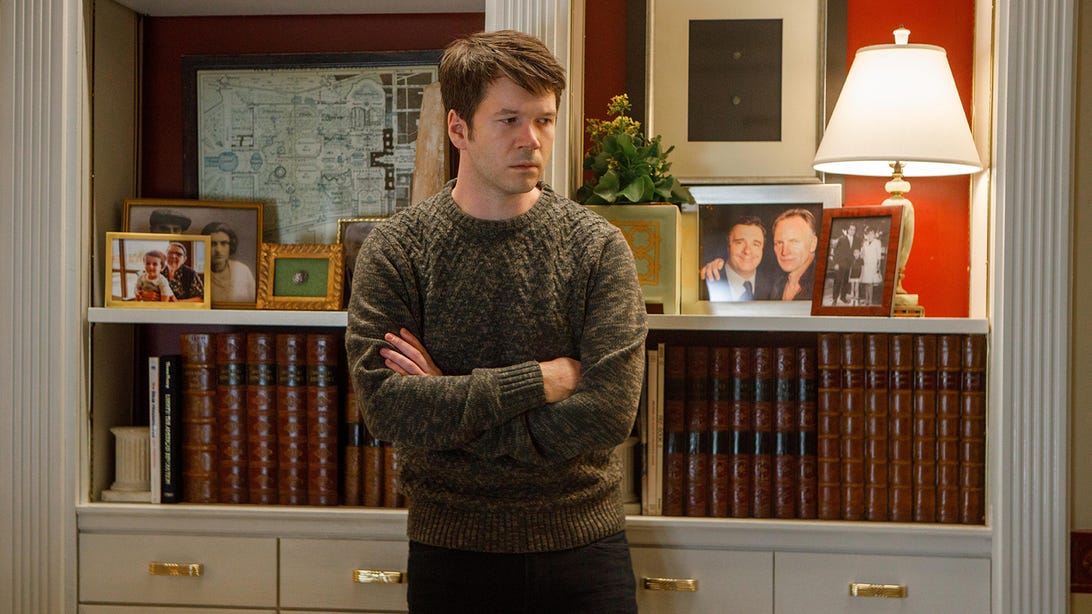
James Caverly, Only Murders in the Building
Craig Blankenhorn/Hulu"The Boy From 6B," Only Murders in the Building
Only Murders in the Building shifts focus away from its central trio a few times in its first season, but "The Boy From 6B" is easily the most clever execution of that change in perspective. Told almost entirely from the point of view of Teddy's (Nathan Lane) son, Theo (James Caverly), who is deaf, the episode is nearly entirely silent, save from some clever sound design tricks and the occasional trickle-in of Siddhartha Khosla's atmospheric score. The episode picks up after Theo and Teddy have become the main suspects in Charles (Steve Martin), Oliver (Martin Short), and Mabel's (Selena Gomez) investigation, and reveals how Theo has been quietly observing from the background up until this point. What's most impressive about "The Boy From 6B" is that it doesn't feel gimmicky, and it doesn't stand as a bottle episode with no overall impact on the main story. Instead, it answers important questions, deepens our understanding of Theo and Teddy's history, and moves the plot along, pulling it off with almost no audible dialogue. -Allison Picurro
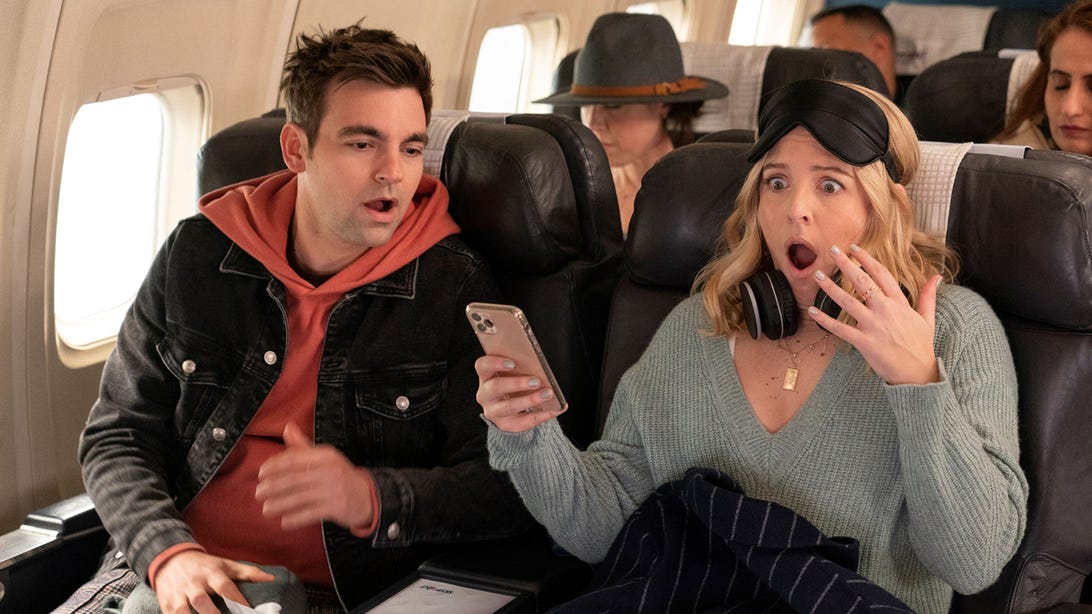
Drew Tarver and Heléne Yorke, The Other Two
Greg Endries/HBO Max"Chase & Pat Are Killing It," The Other Two
This episode should win an Emmy for comedy writing for the number of times it says the word "hole" alone. In "Chase & Pat Are Killing It," Cary (Drew Tarver) decides to seize the moment when he dares to be brave enough to send a "hole pic" to a guy he's chatting up on Grindr. When Cary sends the pic without realizing it's a live photo and his face is visible, it ends up going viral, and by the time his plane lands in L.A. he's become the talk of every celebrity skin site on Al Gore's internet. The story spirals in hilarious and unpredictable ways from there. The premise is salacious, but The Other Two's creative team shows just how smart it is by sending Cary on a full emotional rollercoaster as the lewd photo takes him, and his rear end, to celebrity heights he had only dreamed of. The show perfects the art of a celebrity name drop — Bowen Yang, Busy Philipps, and Mark Ruffalo, to name a few — as more people unexpectedly find themselves on Cary's journey to success. You'd never think that an episode of television nicknamed "The Butthole Episode" would make the case for feel-good content of the year, but here we are. -Megan Vick
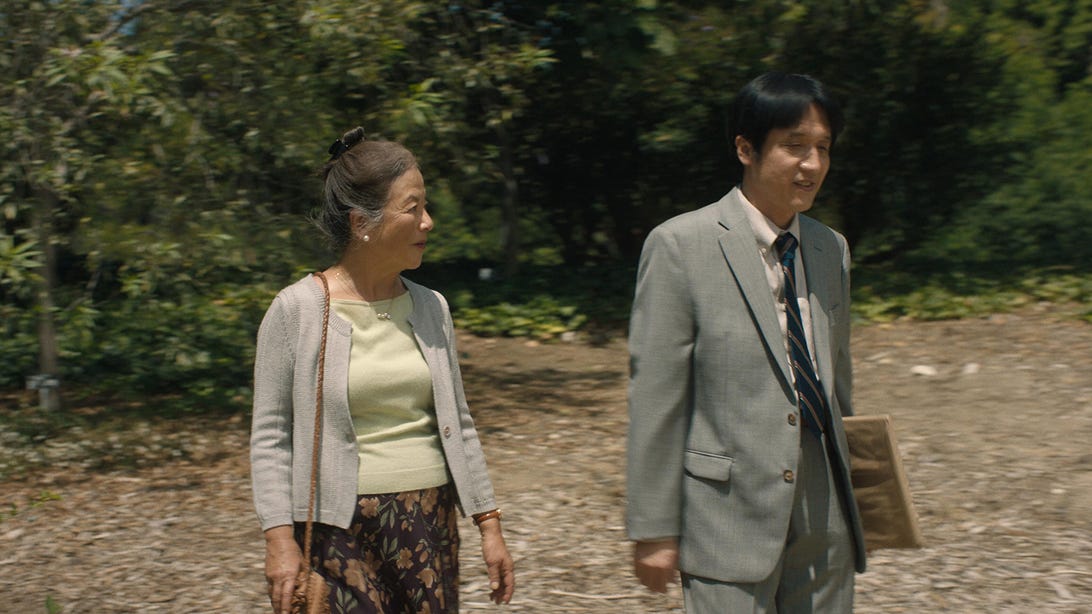
Mutsuko Erskine and Masayuki Yonezawa, PEN15
Hulu"Yuki," Pen15
If part of growing up is finding out your mother is a person, "Yuki" took Pen15 a step closer to maturity. In its home stretch, the cringe comedy took a detour out of middle school and turned its gaze on Maya's (Maya Erskine) mother, Yuki (played with vivid humanity by Maya Erskine's real-life mother, Mutsuko Erskine). The striking episode unfolds like a daydream: Yuki runs into her first husband from Japan and spends the day with him. After waltzing around what might have been, she comes home with a new appreciation for the life she's chosen, though she also admits that she sometimes feels caught between worlds, unsure how to balance being Japanese and being American. It's all lovingly written and directed by Maya Erskine, who packs a punch by setting Yuki's late-night confession to her husband over old home videos. The kids of Pen15 will always exist in a state of suspended adolescence; they're never going to graduate 7th grade. What this episode says is that no one really leaves their past behind. There's a 13-year-old inside your mother, too. -Kelly Connolly
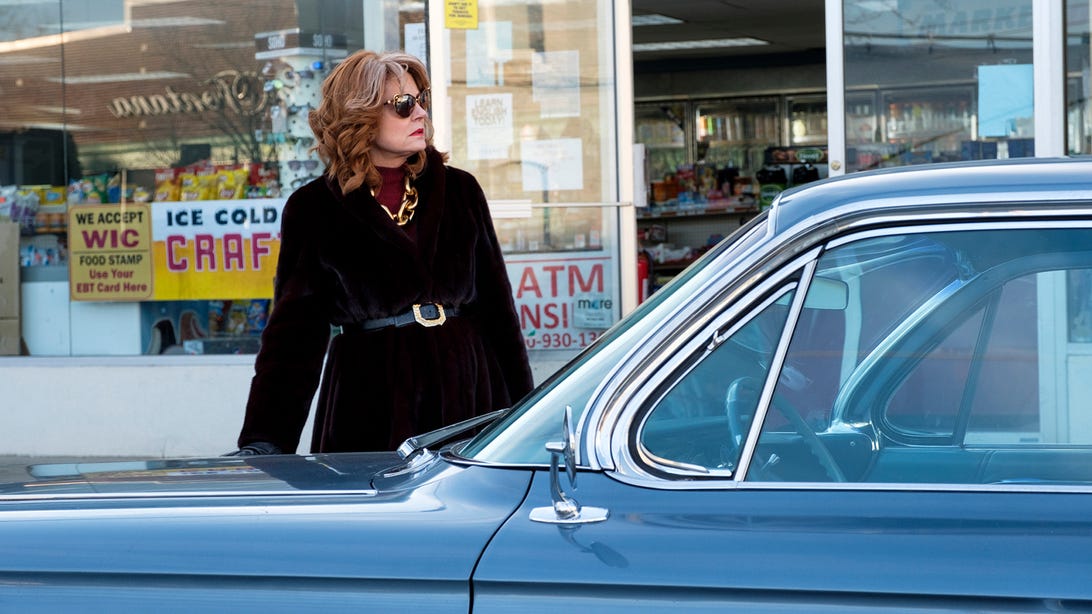
Susan Sarandon, Search Party
Jon Pack/HBO Max"The Infinite Loop," Search Party
If there's a TV episode I've been talking about all year, it's this one — and please take into account that "The Infinite Loop" aired in January, so when I say all year, I really do mean all year. Coming at the tail end of Search Party's fourth season, it centers on Drew (John Reynolds), Elliott (John Early), and Portia's (Meredith Hagner) hunt for Dory (Alia Shawkat), who has been kidnapped and brainwashed by Chip (Cole Escola), the deranged heir to a cookie fortune. Also involved is Chip's eccentric Aunt Lylah (Susan Sarandon, just impeccable), who has come to retrieve Chip and pay off Dory for her silence. But what makes "The Infinite Loop" so memorable is the episode's big set piece: a ludicrous car chase between Lylah and Drew, Elliott, and Portia, in which each party believes it is chasing the other and no one actually has a clue who they're following. What results is a slow crawl around a roundabout, both cars driving in circles as they wait for the other to take an exit, two search parties going nowhere. All these months later and I still laugh every time I think about Sarandon's put-upon delivery of, "These kids, they don't know how to drive, they don't know how to exit." That's called staying power. -Allison Picurro
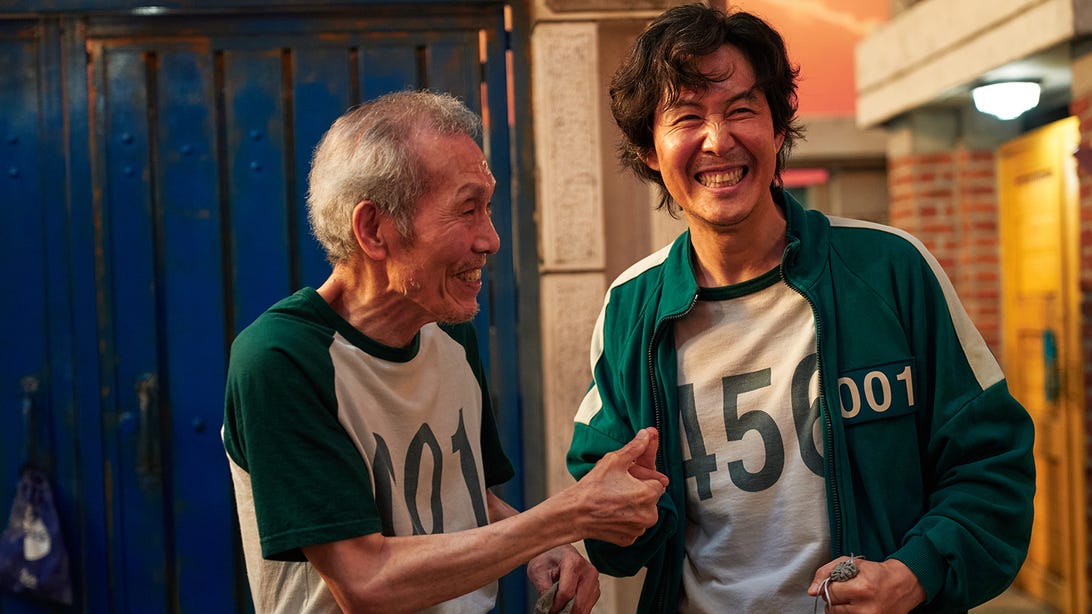
Oh Young-soo and Lee Jung-jae, Squid Game
Noh Juhan/Netflix"Gganbu," Squid Game
Now that the Squid Game phenomenon has died down, we can admit that overall, Squid Game is only good, not great, right? It's clearly a movie idea that's been padded out to TV length, its social commentary is surface level, and the VIPs are unforgivably annoying. But still, when Squid Game works, it's marvelous. And nowhere does the South Korean drama work better than "Gganbu," the devastating sixth episode of creator Hwang Dong-hyuk's Netflix mega-hit. This is the episode where the players have to play marbles against their chosen partner and make fatal decisions that are devastating for themselves and the audience. (Everyone has a death in the marble game that made them cry the hardest; mine is the jaded, self-sacrificing Ji-yeong [Lee Yoo-mi]). By this point in Squid Game, hundreds of people have died, but this is the episode where the deaths start to hurt. And it's the episode that most effectively communicates Squid Game's idea about capitalism being a game where the price of competing is one's very soul. -Liam Mathews

Jeremy Strong, Succession
Macall B. Polay/HBO"Too Much Birthday," Succession
There are so many standout episodes from Succession's third season, but "Too Much Birthday" is the one I keep coming back to. Directed by Lorene Scafaria, it's set at Kendall's (Jeremy Strong) "nervous breakdown" of a 40th birthday party, which he, of course, threw for himself. The spectacle of the party — and it is indeed a spectacle, complete with a tunnel modeled after a vagina and an enormous, password-protected treehouse — is the appropriately hellish backdrop for the Roys' boiling-over sibling dynamics, which have been simmering dangerously for the previous six episodes. Kendall, quickly inching toward the end of his rope and desperately craving his siblings' affection, is shattered to learn that Roman (Kieran Culkin) and Shiv (Sarah Snook) have only shown up with the ulterior motive of meeting with a tech bro whose streaming app their father wants to acquire. When things finally come to a head, it unfolds like the climax of a horror movie, one where the monster isn't visible. The best episodes of Succession are the ones where the Roy kids all get together without Logan's (Brian Cox) domineering presence, where we're reminded of how heavily he looms over them, how they'll tear each other apart at his behest, even if he's not there to see it. -Allison Picurro
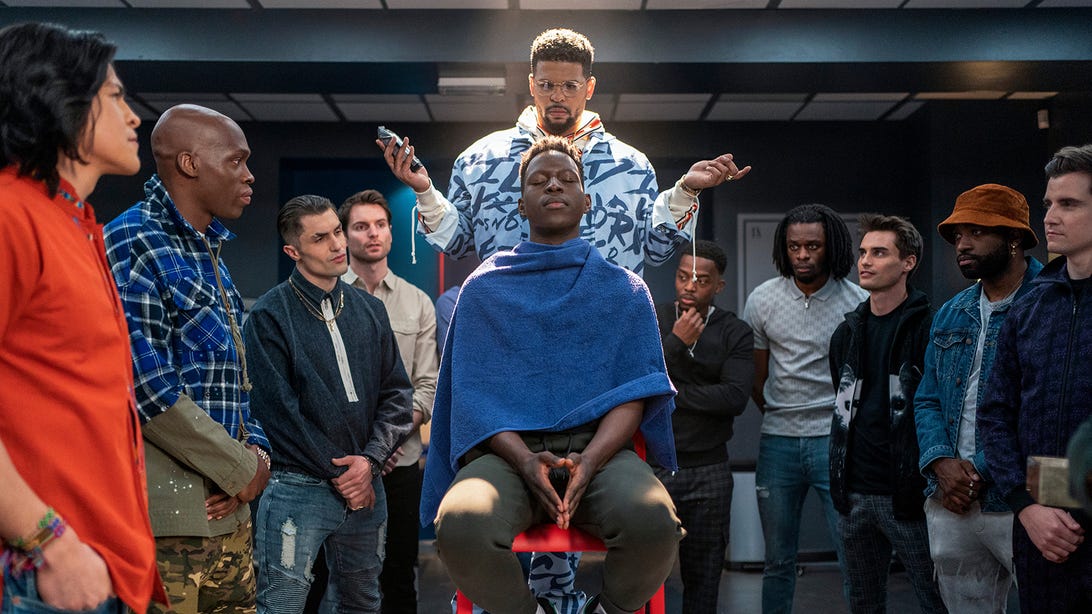
Ted Lasso
Apple TV+"Man City," Ted Lasso
It's my personal belief that any episode of TV containing a scene where two repressed men hug it out to a George Harrison song is going to be an instant classic, but that's only part of the reason why "Man City" is on this list. This was a high point in Ted Lasso's occasionally listless second season, a moment when the action peaked, when all the pieces worked together to create a well-executed story that marked significant developments for many of its major players. The overarching plot is AFC Richmond's big match against Manchester City, but its emotional themes are far more interesting. Fatherhood is one — losing a father, in Ted's (Jason Sudeikis) case, being a father figure, in Roy's (Brett Goldstein), and deciding when to turn your back on your father, in Jamie's (Phil Dunster) — and the importance of being vulnerable, even when it's uncomfortable, is another. Its final moments are pulled off with the swoony spirit of a romantic comedy, a salute to the sparkling chemistry of Hannah Waddingham and Toheeb Jimoh, who give us one of the best TV kisses of the year. By the end, Richmond has suffered a tough loss, but "Man City" is probably the season's biggest win. -Allison Picurro
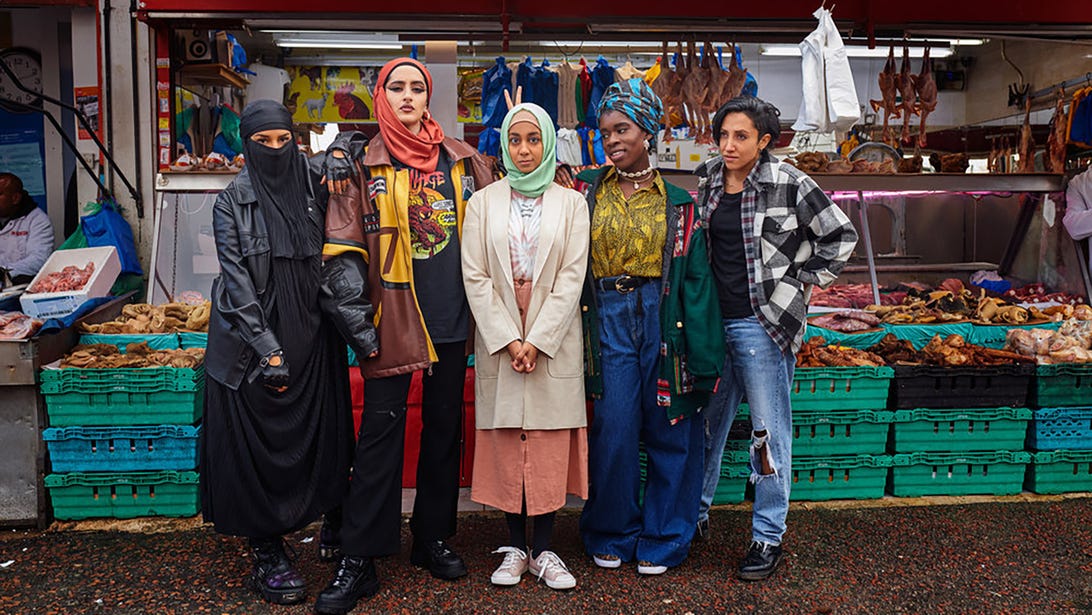
Lucie Shorthouse, Juliette Motamed, Anjana Vasan, Faith Omole, and Sarah Kameela Impey, We Are Lady Parts
Saima Khalid/Peacock"Represent," We Are Lady Parts
Nida Manzoor's buoyant new British sitcom about an all-female Muslim punk band was one of the year's feel-good pleasures, but don't let that trick you into thinking it doesn't have bite. We Are Lady Parts gets down in the dirt in "Represent," the penultimate episode of the first season, which fractures the band after they're burned by an influencer who profiles them for an online magazine. The article frames their music like it's an insult to their religion instead of an expression of it. Branded "The Bad Girls of Islam" — Bisma (Faith Omole) protests, "We're thoughtful Muslim women of planet Earth!" — the women of Lady Parts are vilified online and in their own friend groups. It's a sharp look at how easily representation gets twisted, pushing women of color to turn everything about their lives into a statement. The most show-stopping scene is the last one: a devastated Saira (Sarah Kameela Impey) lashes out by suggesting they give people the scandalous songs they want, driving her bandmates away one by one. The fight touches the raw nerve at the heart of the show, its refusal to let anyone box these women in. -Kelly Connolly
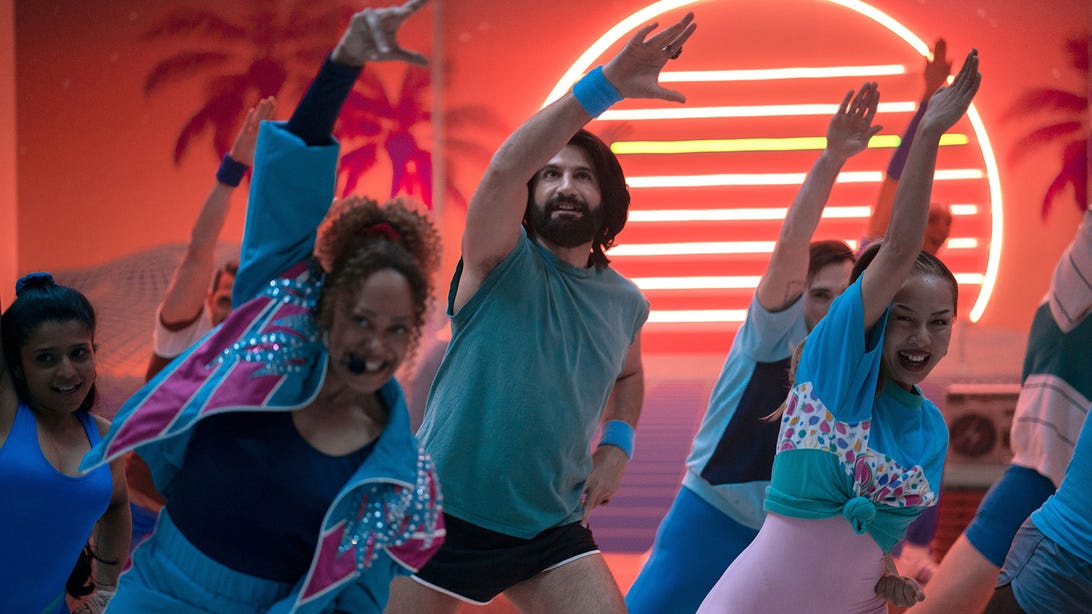
Cree Summer and Kayvan Novak, What We Do in the Shadows
Russ Martin/FX"The Wellness Center," What We Do in the Shadows
Despite their status as powerful, ancient beings, the What We Do in the Shadows vampires are all, in their own ways, naive. That applies especially to the group's resident himbo, Nandor (Kayvan Novak), who makes himself the perfect target for a predatory cult leader toward the end of the comedy's third season when he succumbs to a bout of depression (an eternal life crisis, if you will). The episode finds him rejecting vampirism to join a "wellness center," which is overseen by the creepily seductive Jan (Cree Summer), who swears that through sheer force of will — plus extremely bloody fang removal — she can restore a vampire's humanity, and her conversion process is complete with jazzercise routines and singalongs to Barenaked Ladies' "One Week." Novak is just so good here, having the time of his life donning a feathered wig and eating up every dance move as Nandor fully gives in to his own delusion. Much like Season 2's excellent "On the Run," What We Do in the Shadows is at its best when it explores how one of the vampires fares out in the world on their own — and how they end up back home every time, whether they like it or not. -Allison Picurro
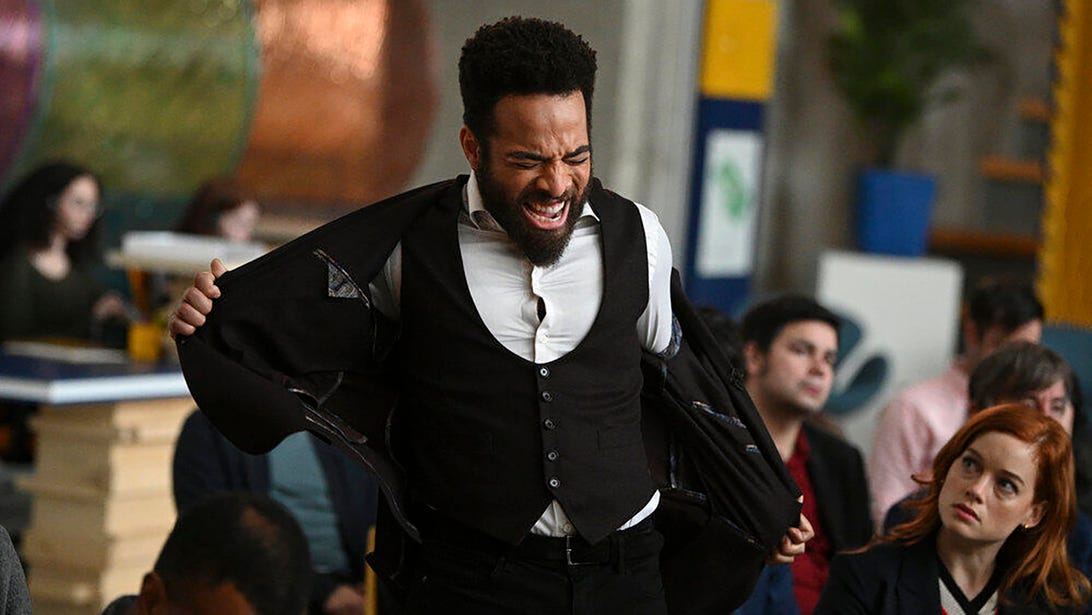
John Clarence Stewart, Zoey's Extraordinary Playlist
NBC"Zoey's Extraordinary Reckoning," Zoey's Extraordinary Playlist
Many TV shows were moved by the murder of George Floyd in May 2020, and the global outcry against systemic racism and police brutality his death sparked. Several shows incorporated Floyd's death at the hands of police and the subsequent protests directly into their Black Lives Matter storylines. Others created similar cases for their characters to react to. Zoey's Extraordinary Playlist went a bit deeper with "Zoey's Extraordinary Reckoning." The episode, written by Zora Bikangaga, took a look at systemic racism within the very specific tech world of Zoey's Playlist and constructed a multifaceted conversation about racism, racial profiling, Black fatigue, and the proper role of white allies. It delivered a more nuanced message about the moment and the upheaval we all experienced after Floyd's death than almost any other show. Anchored by a stunning performance by John Clarence Stewart, "Zoey's Extraordinary Reckoning" explored the issues, made a point, and still found room to celebrate Black joy in the face of seemingly insurmountable pressure and grief. It's truly admirable that the show could make such a powerful contribution to the Black Lives Matter conversation without mentioning the organization or police even once. -Megan Vick
Keep the celebration of the best TV of 2021 going!
Check out TV Guide's roundups of the best shows of the year and the best performances of the year.
Edited by Kelly Connolly and Tim Surette
Illustration by Brittney McGhee
